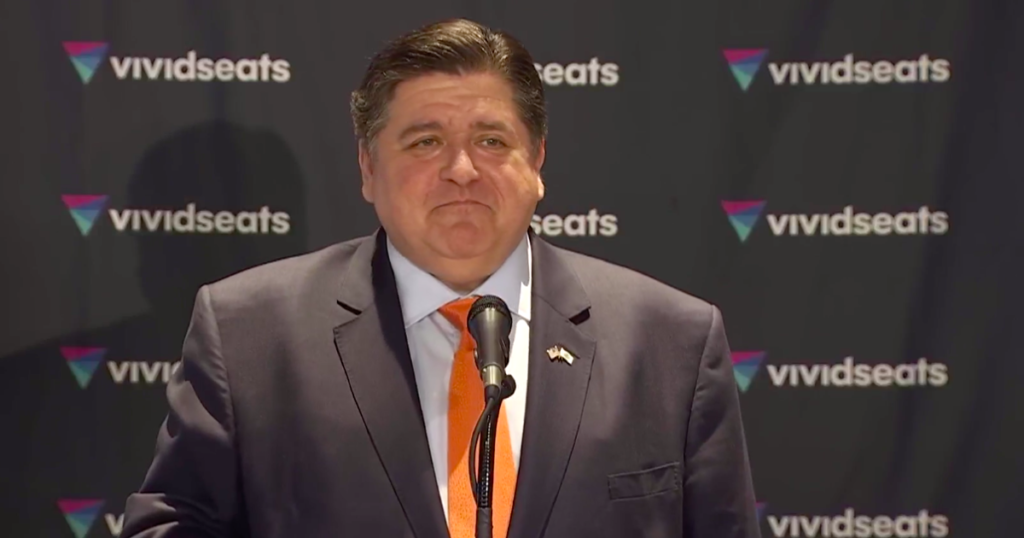
(The Center Square) – Illinois Gov. J.B. Pritzker on Wednesday signed the state’s $50.6 billion budget, which includes pay raises for state lawmakers, health care for undocumented migrants, and new taxpayer-funded programs for education.
Pritzker was in Chicago alongside city officials and other state lawmakers to sign the state’s fiscal 2024 budget. The investments in the most expensive budget in state history include $200 million extra for pension payments, $250 million to fund the first year of Smart Start Illinois, which seeks to end childcare deserts, and another $80 million in state funds that will go toward affordable housing.
According to Pritzker, the budget is another step in undoing the work of previous governors.
“From the beginning, I promised to work together with the General Assembly to restore fiscal responsibility to our state government after years of mismanagement,” Pritzker said. “Thanks to our firmer fiscal foundation, we have been able to put billions of dollars back into the pockets of Illinois taxpayers while investing in our future.”
National studies rank Illinois has having among the highest local and state tax burdens in the country.
Another provision in the budget that has received pushback from some Republican lawmakers provides undocumented migrants with health care that was part of a larger medical omnibus bill that makes changes to the state’s Medicaid system.
A recent audit estimated that the subsidies for migrant health care could cost taxpayers more than $1 billion. State Rep. Mike Marron, R-Fithian, said Pritzker and Democratic lawmakers do not have their priorities straight regarding what the state needs.
“I think the amount of money that the Democrats have understated fairly significantly is going to undocumented immigrants,” Marron told The Center Square. “I think it’s a problem. I think they have mixed up priorities.”
Pritzker claims that this change will save the state money.
“We save money when we invest in health care for undocumented immigrants,” Pritzker said. “What happens when if they don’t get basic health care, they end up in an emergency room, and we all end up paying for that at a much higher cost than if we have preventative care and regular care for people.”
The budget will also include another pay raise for Illinois lawmakers. The annual cost of living increase for state lawmakers is capped at 5% or the rate of inflation, whichever is lower. The increase in pay was set for legislators at 5.5% but was vetoed by Pritzker and brought down to a 5% increase due to the cap on the COLA’s.
Republicans have spoken out against implementing any pay increase for lawmakers and said that no extra taxpayer funds should be going to them while high tax rates and inflation burden Illinois families.
“While Illinois families struggle, Gov. Pritzker decreased the politician pay [by] a paltry 0.5%. While this change may make it constitutional, it does not make it right,” said House Minority Leader Tony McCombie, R-Savanna. “House Republicans will continue to hold the majority party accountable to not only our constitutional rights but also to Illinois taxpayers.”
Marron told The Center Square that the pay raise is another example of the Democrats’ inability to relate to their constituents.
“This is so unnecessary. It sends the wrong message at the wrong time. People are struggling with inflation, they are paying higher amounts of money for gasoline, for energy, for food, and for medicine,” Marron said. “We are just so out of touch.”
Marron was elected to office in 2018, and he said his salary has increased by nearly 25% in that time frame, from $67,000 to $89,000 annually. He worries that this will continue to push people into politics for the wrong reasons.
“I think we already have that problem,” Marron said. “People were getting into politics for the wrong reasons at $67,000, so I think this will just compound the problem.”
Other investments will include $500 million in state and federal funds to Health and Human Services for upgrades to their service and $400 million to close major economic development deals and attract businesses and jobs to the state.
The state’s budget will go into effect on July 1.




